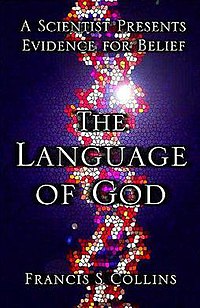Leolaia, the point I was trying to make is history is not science. There are experts that have provided “secular” accounts to back Bible history and chronology:
http://en.wikipedia.org/wiki/Rolf_Furuli
Rolf Johan Furuli (born 19 December 1942 is a lecturer in Semitic languages at the University of Oslo.
He is currently involved in translation of non-Christian religious texts, and is considered an expert in ancient languages. In 2005, he finished a doctoral thesis suggesting a new understanding of Classical Hebrew. This study has been privately published.
Furuli started his studies of New Babylonian chronology in 1984. Based on these studies, he has attempted to defend the view held by Jehovah's Witnesses—of which Furuli is a member—that Jerusalem was destroyed by the Babylonians in 607 BC rather than 587 BC.
Alongside Norwegian, English and Hebrew, he is able to read Akkadian, Aramaic and Greek. He has written works about Bible translation and Biblical issues.
As long as you judge the historicity of what's recorded in Biblical accounts excluding the possibility of the Bible being inspired of a higher power, human fallacy can always be used to discredit history recorded in the Bible. The existence of wicked supernatural forces can misconstrue human history. It's certainly convinced you has it not? While secular history serves a relative purpose, the existence of the invisible spirit realm is better assessed from scientific methods and personal experience, not obscure uninspired historical data written by imperfect men.
Jehovah's Witnesses strive to accurately assess Bible history in comparison with the grand scheme of all things unlike Christendom's Churches. Like I said before: As far as I'm concerned the Bible meets the criteria of scientific evidence for divine inspiration.
No other book took so long to complete as the Bible. In 1513 B.C.E. Moses began Bible writing. Other sacred writings were added to the inspired Scriptures until sometime after 443 B.C.E. when Nehemiah and Malachi completed their books. Then there was a gap in Bible writing for almost 500 years, until the apostle Matthew penned his historic account. Nearly 60 years later John, the last of the apostles, contributed his Gospel and three letters to complete the Bible’s canon. So, all together, a period of some 1,610 years was involved in producing the Bible. All the cowriters were Hebrews and, hence, part of that people “entrusted with the sacred pronouncements of God.”—Ro 3:2.
The Bible is not an unrelated assortment or collection of heterogeneous fragments from Jewish and Christian literature. Rather, it is an organizational book, highly unified and interconnected in its various segments, which indeed reflect the systematic orderliness of the Creator-Author himself. God’s dealings with Israel in giving them a comprehensive law code as well as regulations governing matters even down to small details of camp life—things that were later mirrored in the Davidic kingdom as well as in the congregational arrangement among first-century Christians—reflect and magnify this organizational aspect of the Bible.
Rbi8 p. 8 Introduction
This 1984 revised edition of the New World Translation of the Holy Scriptures richly enhances accurate Bible knowledge by means of several distinctive features such as the marginal (cross) references, an extensive footnote apparatus, a concordance (Bible Words Indexed) and an appendix. Modern computerization has assisted greatly in preparing these features.
There are more than 125,000 marginal (cross) references in this edition. These citations demonstrate that there is at least a second witness to almost every Biblical matter. A careful comparison of the marginal references and an examination of the accompanying footnotes will reveal the interlocking harmony of the 66 Bible books, proving that they comprise one book, inspired by God.
